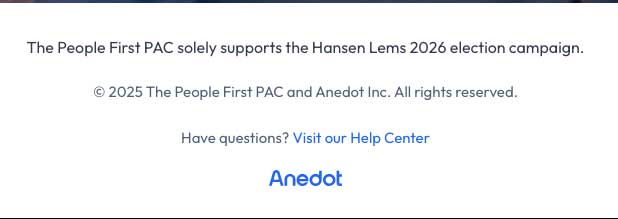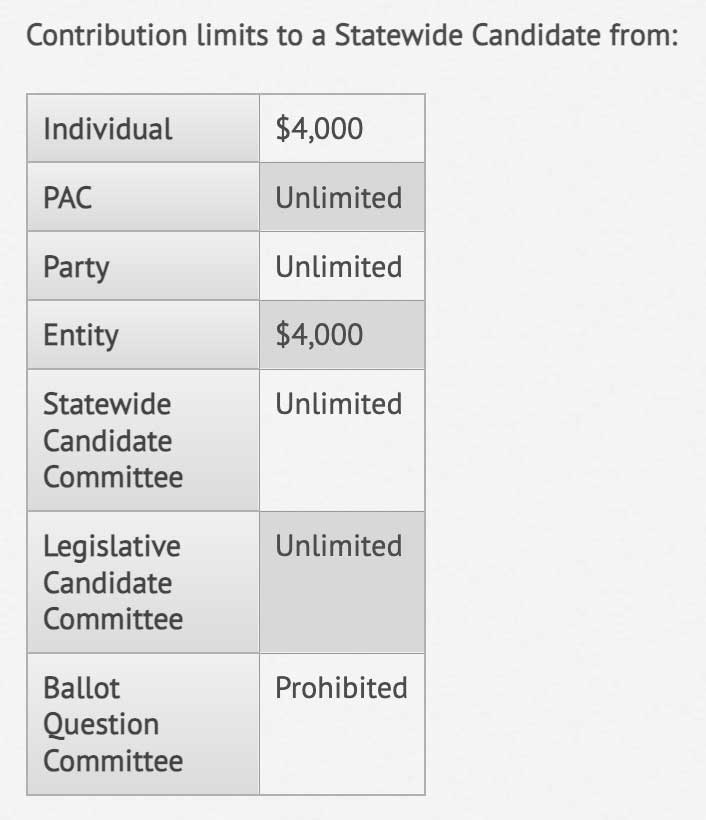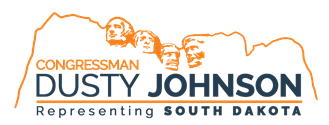
Rounds Reintroduces Legislation Supporting AI Innovation in Financial Services
Legislation supports provision in Trump administration’s AI Action Plan
WASHINGTON – U.S. Senators Mike Rounds (R-S.D.), Martin Heinrich (D-N.M.), Thom Tillis (R-N.C.) and Andy Kim (D-N.J.) and U.S. Representatives French Hill (R-Ark.), Chairman of the House Financial Services Committee, Ritchie Torres (D-N.Y.), Bryan Steil (R-Wis.) and Josh Gottheimer (D-N.J.) today reintroduced bipartisan, bicameral legislation to promote artificial intelligence (AI) innovation in the financial services industry. The Unleashing AI Innovation in Financial Services Act would direct financial regulatory agencies to create Innovation Labs for regulated entities to test AI projects, allowing them to experiment with cutting-edge technologies in a safe way.
The Trump administration’s AI Action Plan, released earlier this month, calls for the establishment of regulatory AI Centers of Excellence to test AI tools while also sharing results and challenges with relevant partners, specifically mentioning the Securities and Exchange Commission (SEC) as a potential participant. The Unleashing AI Innovation in Financial Services Act would create these labs in the financial regulatory agencies, including at the SEC. This legislation is supported by the U.S. Chamber of Commerce.
“The financial services industry has been using AI for decades, but companies must have the opportunity to innovate as major advancements continue to develop,” said Rounds. “The Unleashing AI Innovation in Financial Services Act is designed to foster innovation and economic growth by providing a controlled environment where new financial products and services that use AI can be tested. I’m pleased that the Trump administration shares this vision, as outlined in their recent AI Action Plan. By creating these innovation labs, we aim to strike a balance between encouraging innovation and maintaining consumer protection, ultimately strengthening our financial system and keeping our country at the forefront of global financial technology.”
“To unlock AI’s full potential and ensure it is deployed responsibly, we need regulatory guardrails that are informed by real-life use cases,” said Heinrich. “Our Unleashing AI Innovation in Financial Services Act does exactly this by enabling the private sector and government agencies to work together and encourage innovation that protects consumers.”
“Artificial intelligence is transforming the financial sector, and it is critically important that U.S. firms can innovate at the pace necessary for America to maintain its role as the center of the global economy,” said Tillis. “This bipartisan bill provides a commonsense framework that encourages domestic cutting-edge development while still ensuring the necessary regulatory oversight is in place.”
“Without the necessary safeguards in place to look after consumers, we will not be able to see the full promise of AI or reap the benefits of AI innovation long-term,” said Kim. “This bill puts critical parameters in place to look after the public interest that will allow us to push forward with secure and stable innovation across the financial sector.”
“As AI continues to evolve, we must understand its full impact because it will touch every part of our lives,” said Hill. “The Unleashing AI Innovation in Financial Services Act ensures that federal financial agencies allow the companies they oversee to experiment with AI through regulatory sandboxes. Our Committee looks forward to exploring AI and its uses in the financial services industry. We are committed to fostering innovation and collaboration between the public and private sectors. I’m grateful to my bipartisan House colleagues and to Senator Mike Rounds for leading this effort in the Senate. Advancing this bill is key to keeping the U.S. at the forefront of AI innovation in financial services.”
“In the face of rapid AI advancement, Congress has a responsibility to ensure responsible innovation that protects consumers, strengthens our economy, and maintains American leadership,” said Torres. “I’m proud to co-lead this bipartisan, bicameral effort alongside Congressman French Hill to create AI Innovation Labs, giving regulators a safe and structured way to engage with cutting-edge technologies. This bill ensures that innovation and oversight go hand in hand.”
“The United States must lead in artificial intelligence while responsibly addressing the risks that come with emerging technologies,” said Steil. “Our Unleashing AI Innovation in Financial Services Act will ensure that we are able to develop this technology responsibly and safely, protecting consumers, and allowing the U.S. to win the tech race.”
“When it comes to artificial intelligence, we need smart safeguards in place to protect consumers, prevent abuse, and ensure our families and financial systems are safe. We also must ensure that the United States continues to lead the world in innovation,” said Gottheimer. “That’s why I’m proud to help lead the bipartisan, bicameral Unleashing AI Innovation in Financial Services Act, which will bring together the government, private sector, and innovators to explore the use of new AI technology in financial services. This commonsense bill will allow for experimentation while putting guardrails in place to strengthen consumer protections and help ensure that American technology stays ahead of the curve.”
The Unleashing AI Innovation in Financial Services Act establishes regulatory innovation labs for AI test projects at the Federal Reserve, the Office of the Comptroller of the Currency (OCC), the Federal Deposit Insurance Corporation (FDIC), the Securities and Exchange Commission (SEC), the Consumer Financial Protection Bureau (CFPB), the National Credit Union Administration (NCUA) and the Federal Housing Finance Agency (FHFA). Regulated entities would apply through their primary regulator and must be able to demonstrate the project will serve the public interest (including consumer projection), enhance efficiency or increase competitiveness and not present a systemic risk to the financial system.
Click HERE to read full bill text.
###









